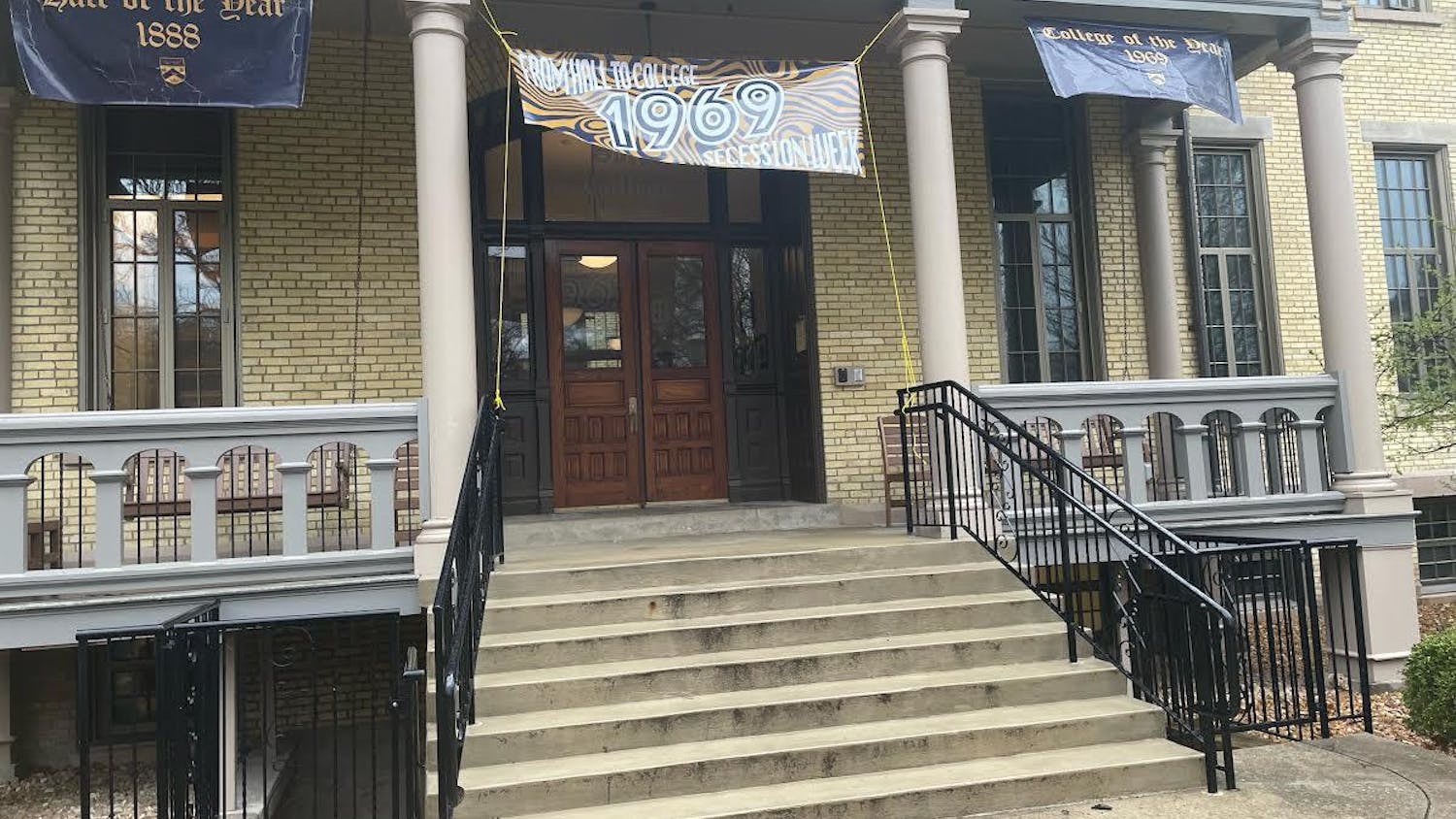Elected last February and sworn into office in April, student body president Lauren Vidal and vice president Matt Devine, both seniors, have settled in and started implementing several of the initiatives they began last spring.
At the end of last year, Vidal announced a new program, O’SNAP, or the Student Nighttime Auxiliary Patrol, which will enhance the SafeWalk program with two of what Vidal calls “state-of-the-art golf carts." SafeWalk currently allows students to call Notre Dame Security Police (NDSP) and receive escorts to their destinations free of charge.
Vidal said she hopes O'SNAP will do more than revamp the existing SafeWalk program.
“Eventually we’d like to replace the SafeWalk program entirely,” she said.
Vidal said SafeWalk staff members will undergo training to drive the golf carts. Devine said SafeWalk employees, once trained, will drive the newly-purchased golf carts, which come fully equipped with seat belts, heating and a stereo system.
“The first couple of weeks, O’SNAP may be operated by NDSP officers,” Devine said.
Student government purchased the golf carts with funds left over from the previous administration, Vidal said. She said students can still use the previous SafeWalk system to request an escort.
“Right now, the phone number to call is the SafeWalk number. Then the student will be connected to a dispatcher who will ask them where they are located, and can then provide an estimate [time] for their pick-up,” she said.
For the foreseeable future, O’SNAP will operate exclusively on-campus, but Devine said he, Vidal and NDSP’s Sergeant Tracy Skibins plan to have the program up and running this weekend or early next week.
Another initiative Vidal wanted to tackle last year was the student readership program, which provides free newspapers to on-campus students. She said student government had maintained the same system for several years and decided to explore other options.
“We essentially stayed with the Gannett program, which sells a readership package to universities and colleges," she said. "Our contract with them included USA Today, the New York Times and the South Bend Tribune… When we took office, we realized that there may be students who have opinions on the program."
Vidal and Devine eventually took the discussion to the student Senate, which informed them that many students wanted to read the Wall Street Journal, particularly because individual subscriptions cost more than those to other newspapers and because many business professors encourage their students to read the Wall Street Journal daily, according to an April 10 article in The Observer.
“We were fortunate enough to go through a negotiation process with the Wall Street Journal and the New York Times, and we have signed two new contracts with each publication," Vidal said. "This is the first time we will have brought the Wall Street Journal to campus.”
Additionally, Vidal decided that to save money, student government opted not to pay the companies to deliver the papers to their individual on-campus distribution sites, but instead chose to do a bulk drop.
With the saved money, student government will instead pay students to deliver the papers to these sites each morning. According to Devine, they hope to employ two or three students who will work in rotations. This week, Vidal and Devine will deliver the papers to the dining halls themselves, “to determine how long it will take and how much we should pay them,” Devine said.
“We’re hoping to announce the job opening at the end of the week,” Vidal said, “I’m so glad we’ve been able to create what will be a steady, easy job.”
Starting this week, 400 copies of each newspaper will be available in both dining halls, LaFortune Student Center and the Mendoza College of Business.
Devine said a third new initiative will give students easy access to local products for one day this fall.
“We’re already pretty far underway with preparations for quad markets, which will bring area farmer’s markets to campus,” Devine said. “We’re looking to have it the Friday before a home game in October, and we already have several companies looking to partner with us. It will be almost run as a sort of harvest festival.”
Looking ahead, Vidal said her goal for the year “is to take conversations that have been happening around campus in the last couple of years and make them practical and tangible.”












